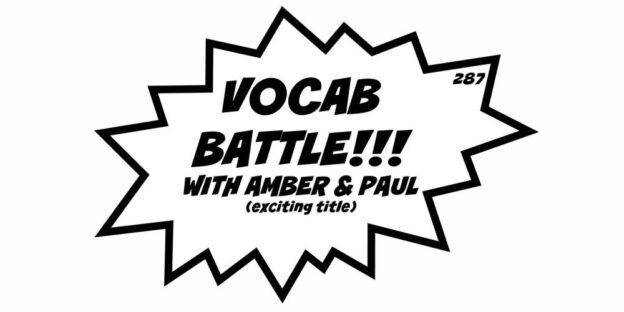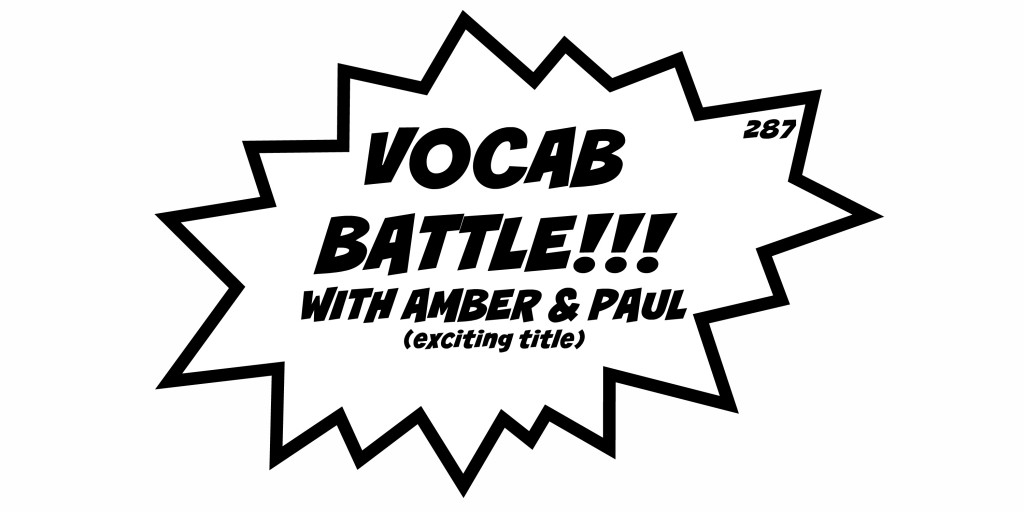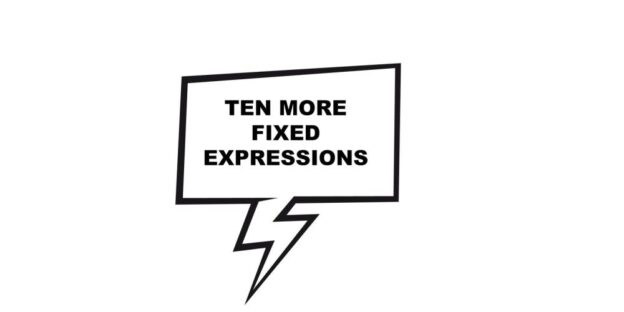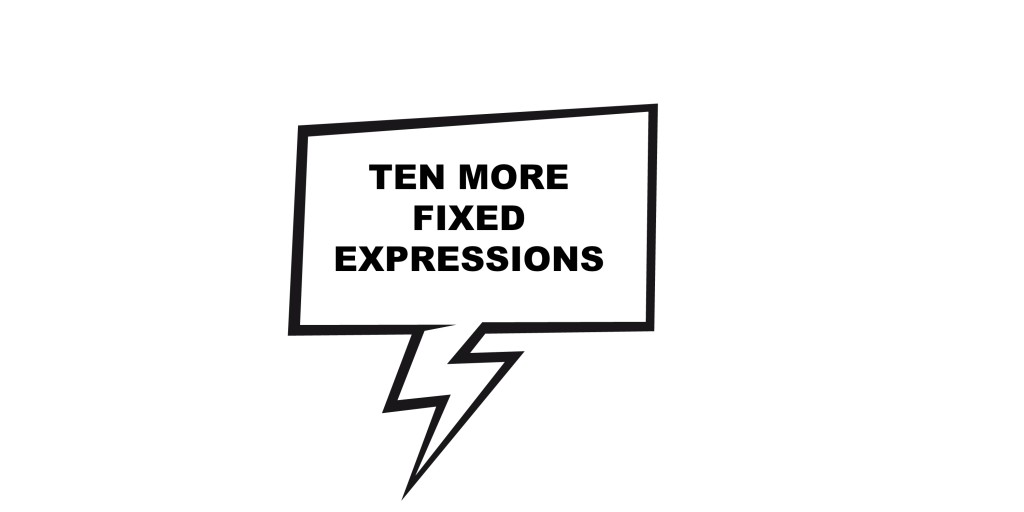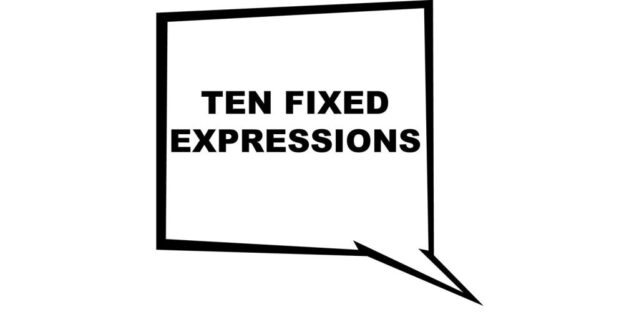In this episode we’re going to listen to some stand-up comedy by a popular British comedian called Tim Vine, which should be pretty challenging because he tells lots of puns and fast jokes.
But before that, I just want to tell you about a new competition that I’m launching today for listeners to this podcast. This is the Luke’s English Podcast photo competition. See below for all the details, to download this episode and to watch a video of Tim Vine.
[DOWNLOAD] [LISTEN TO PART 2]
The LEP Photo Competition
It’s been a great year for Luke’s English Podcast with loads of new episodes. All kinds of things have happened this year and I’ve talked about a lot of them on the podcast. I’ve had lots of responses from you my listeners and the podcast is still going from strength to strength in terms of audience numbers.
One of the things that’s made it great for me is that I have such awesome listeners all over the planet. It’s great for me to imagine people listening to my podcast in different situations, in different places all over the world. But I’d like to do more than imagine those situations, I’d love to actually see them. I think it would be really cool if you, the listeners of this podcast, could all share photos of your surroundings while listening to LEP.
Maybe you’re on a bus or train, maybe in your car, maybe just walking around, maybe you’re at home with your pets or a cup of tea, maybe you’re climbing a mountain, maybe you’re on the international space station orbiting the earth or something.
Whoever you are, wherever you are, whatever you’re doing – send me your photos. I want you to take a photo that shows the situation you’re in while you listen. Now, you might think “Nah, you don’t want to see a picture of my surroundings…” Yes, I do! Even if you think it’s boring – I want to see it. If you’re on the bus, take a pic of the bus or your view from the window. If you’re walking along a street, take a pic of the street so we can see what it looks like. If you’re on an alien spaceship listening to this from outside the earth’s atmosphere, send me a photo of the spaceship or your view of earth from a distance. Just take a picture of what you can see while you’re listening.
There’s just one rule – the photo has to contain something that shows you’re listening – so include in the photo the LEP logo or some headphones or a screen with the logo on it or some other indication that you’re listening. You don’t have to include a picture of yourself, but you can if you want to. It’s up to you. The main thing is – I want you to show us something that you can see in your surroundings while you listen to LEP and your photo should contain something that proves you’re listening. So if you’re taking a photo of the street, or the view from your hike in the mountains, make sure there’s a headphone in the photo or the LEP logo or even you listening. Yes, just a headphone in the photo is enough for me.
Send your photos by email to podcastcomp@gmail.com. Closing date for photos is Friday 15 January at midnight London time.
When I’ve collected all the photos, I’ll put them all up on the website and you all the LEPsters can vote for their favourite. Then I’ll pick 3 winners. The top winner will get an LEP mug plus another gift of their choice (another mug, a t-shirt or a bag). The two runners up will get LEP mugs.
OK, so start taking some photos to show us what it’s like where you are while you’re listening to the podcast. Feel free to get creative! Just make sure you insert something in the photo to show that you’re listening. I want it to be a real picture, not a faked one. OK!
Mailing list
From messages I receive it seems that some of my listeners just can’t wait for me to upload new episodes and they keep going to my page to see if there’s new content there. You should join the mailing list and then you’ll get an email whenever I post a new episode on the website. On my website near the top on the right there’s a field that says “Subscribe by email” just enter your email address there and click confirm.
Top 10 countries this week (number of ‘plays’ in the last 7 days)
| Russia |
12254 |
| Japan |
10443 |
| China |
10428 |
| Spain |
7434 |
| United Kingdom |
6175 |
| Germany |
5588 |
| Poland |
4740 |
| United States |
4570 |
| Italy |
4068 |
| South Korea |
3038 |
Do you want your country to go up in the list? Tell your friends!
British Comedy: Tim Vine
Tim Vine is a British stand up comedian who is famous for doing lots of one-liners. He’s one of the UK’s favourite stand-up comedians. His jokes are all clean and family friendly with no rude language or explicit content. He’s a self-deprecating cheeky chappie who makes everyone laugh. The thing that makes Tim Vine different to other comedians is that he always does a succession of one line jokes in his performances. It’s just joke after joke after joke and often they don’t relate to each other at all, it’s just a relentless and rapid stream of unrelated gags and puns. British audiences love him, but I wonder what you’ll think of his comedy.
I think to an extent, his comedy is quite challenging for non-native speakers of English. By that I mean that he’s the sort of guy that, if you’re a learner of English, you’ll be watching TV with a group of native English speakers, and Tim Vine will come on TV, and all the native speakers (let’s say youre with an English family or some English friends) all of them will suddenly say, “Oh, I love Tim Vine, he’s soooo funny, you’ve got to check this out, you’ll love this, all his jokes are so clever – they’re all based on double meanings and word play, you’ll love it.” You then watch his set, and he tells joke after joke after joke, the audience on TV is loving it, the other people in the room are all laughing, but to you he’s just saying lots of really quick little sentences without pronouncing the words properly, and he’s acting like a total amateur, and he looks all shy and apologetic on stage, and you think – I can’t believe these English people find this guy so funny, what’s wrong with everyone. Or, what’s wrong with me?
There’s nothing wrong with anyone of course, it’s just a language and culture gap that might stop you from enjoying his jokes, and it’s a big pity because there is a lot of joy and pleasure to be gained from watching Tim Vine do comedy.
So, in this episode I’m going to do something a bit ambitious – I’m going to try to help you understand and enjoy one of Tim Vine’s comedy performances. We’re going to listen to about 10 minutes of Tim Vine’s act, and then I’ll break it down and help you understand exactly what he’s saying and why the audience is laughing. If you laugh at his jokes too – fantastic, that’s wonderful. If laughter happens, then success has been achieved. If laughter doesn’t happen – no problem, we’ll still have success because I will explain the language and you’ll learn some really natural English.
I expect that while we listen to Tim Vine some of you will start thinking – this just isn’t funny. Well, let me just say – Tim Vine definitely is funny and many many people agree with that. In fact, I think that The only reason someone won’t find him funny is because they just don’t get the jokes. He’s not offensive, he’s not rude, he’s a lovely man who just wants to make people laugh. There’s no other reason for not liking him other than the fact that you don’t understand his jokes.
A few facts to prove my point: Tim Vine is the holder of the Guiness World Record for most jokes told in an hour. He told 499 jokes. The criteria for the record is that the jokes received a laugh from the audience. So, 499 jokes got laughs in one hour. That’s over 8 jokes a minute.
He has won the “Joke of the Year” award twice. That’s the prize for the best joke at the Edinburgh Fringe Festival.
My Mum and Dad are both huge fans of Tim. They went to see one of his live shows, and absolutely loved it. And, you should know that my parents have exceptional taste in most things.
Now, if those three things don’t convince you that Tim Vine is funny, then I don’t know what will.
Alright, so now we have agreed that Tim Vine is definitely funny, and that if you don’t find him funny then it’s almost certainly because of the language and cultural gap – let’s listen to Tim telling some jokes and then we’ll work on closing that linguistic and cultural gap. Hopefully the result will be that your understanding of English will be significantly raised in the process, even if it requires a bit of work. In fact, this could be the perfect test – teach – test model for learning English.
I’m not saying that you’re not going to understand any of this – I’m sure many of you will get a lot of the jokes without any problem, but honestly I think that if you’re not proficient at English you’ll struggle to get them. And watch out – don’t assume you’ve understood the joke because you understand the words. There’s always a double meaning.
So, let’s go.
Let’s now listen to the first 3 minutes of Tim Vine’s stand up routine from a show called One Night Stand, which is a popular stand-up comedy show on a British TV channel called Dave.
Stop listening after Tim’s song called “It’s easy”.
Then go back through the jokes one by one. If you already got these jokes, then sorry if I’m telling things you already know.
Cultural point: Tim knows, and the audience knows, that the jokes are pretty stupid and crap. On their own they have pretty much no value. But when the jokes come one by one, relentlessly, so fast they build into a rhythm. You don’t get a chance to think about how silly they are, you just laugh at the pun and the next one comes along immediately. That part of the enjoyment – and if you don’t understand them, or if you think about the individual jokes too much, that can kill the fun. So, analysing the jokes like this is probably the best way to KILL the humour, but anyway…
Now, you should watch the whole video on the page for this episode. You should do that so you can actually see Tim performing the jokes, including the expressions on his face and everything.
That’s it! Remember – don’t give up even if it’s difficult.
And, remember, the force will be with you, always…
Tim Vine – One Night Stand
The video is no longer available – it was removed from YouTube. :(
Tim Vine’s jokes – explained
A listener called Viviane sent me a list of all the jokes in this episode, with explanations. Here they are.
1. Let’s hear it for my internal organs,
let’s hear it for = invite the audience to applaud
Tim plays his body as you hear the sound of an organ. “organ” has two meanings – something in your body (e.g. your liver or kidneys) and a musical instrument.
2. This bloke said to me: “I’m gonna dress up as a small island off the coast of Italy.”
I said: “Don’t be so silly. (Don’t be Sicilly.)”
3. I think a parachute jump is the scariest thing that I have ever, ever… refused to do.
(You expect him to say “that I’ve ever, ever done.”)
Actually I once did the parachute jump. They got you attached to the instructor, and you jumped out of it together. So in this airplane, they attached me to this bloke, and we jumped out, and it was really frightening, because half way down, he asked me “how long have you been an instructor?”
4. But we’ve all heard the theory that people look like their pets. Well tonight I’m going to test this theory out. You, sir, have you got a llama(秘鲁 骆马)?
The suggestion is that the person looks like a llama.
Just so you know, whoever sitting there I always say “have you got a llama?”, I just got lucky tonight.
5. I went to Sooty’s barbecue, and had a Sweep steak.
hand puppet bear, Sweep is Sooty’s best friend. He’s a dog.
a sweepstake = a sort of bet in which you can win all the money
The suggestion is that Tim ate Sooty’s best friend. This joke isn’t very good because the situation doesn’t make sense. Why would he have a sweepsteak at a barbecue?
6. I met the man who invented the window sills, what a ledge! (what a ledge/legend)
A window sill is a type of ledge.
“What a ledge!” is a way to say that you think someone is brilliant, or a legend.
7. This antique dealer came up to me. He said, What do you think of the Chinese Dynasty? I said, it was very badly dubbed.(配音)
Dynasty: a famous American TV show during the 1980s.
This is because most of the Chinesr movies, for example, kungfu movies from the 80s were always very badly dubbed, so the movement of the person’s mouth and the voice you’ll hear would be completely out of synchronization.
8. I said, I would open a shop in Saudi Arabia. He said, Dubai? (Do you buy?) I said, yeah, and sell!
9. My grandfather was a very controversial artist, he designed the lion in Trafalgar Square. It doesn’t sound very cutting edge, but at the time, it really put the cat amongst the pigeons.
Cutting edge: innovative
Put the cat amongst the pigeons: totally upset the situation.
Trafalgar Square is famous for having lots of pigeons.
10. Someone said to this New Zealand bloke, I’m going to a Swidish furniture shop. He said, Does it look like I care?(IKEA)
“I care” and “IKEA” sound quite similar in a Kiwi accent.
11. I’m going to buy some furniture polish (comes in an aerosal can).
He said, “Pledge?”
I said, “I will give you my word.”
pledge: a brand name. It also means = to promise
12. You probably think this was all very well, but when do we get to sing with you Tim? The answer is now.
I might be totally deaf, I never thought I’d hear myself say that! (“I never thought I’d hear myself say that” means “I’m surprised that I’m saying that” but it also means that he’s surprised to actually hear himself saying it because he might be deaf.
~It’s easy.~ (It sounds like the introduction to the song, but then you realize that that’s the song. Songs typically will lay down a theme, the introduction will probably be about 4 bars long)
13. This song is called Subtraction, take it away! (What you say in a performance before a song, Let’s start the song!) Hit the music please!
“subtraction” is also the act of subtracting numbers in maths, or ‘taking things away’.
14. ~It’s easy~
Blimey that was hard work, wasn’t it? (so, it wasn’t actually easy)
15. Bnag! That’s bang out of order.
“That’s bang out of order” is what you say when someone is behaving in an unacceptable way.
He’s also talking about the word “BNAG” which is the word “BANG” but with the letters in the wrong order.
16. I don’t know why I put myself through this. (Tim has taken a piece of cardboard, and put his head through the hole.)
To put yourself through something = force yourself to have a difficult experience
He is also literally putting himself through a piece of cardboard.
17. Hello, My name is Bruce Willis, and I was in a diehard film, I shoot people and people shoot back at me. Yes, I am BruceWillis, I was in The Sixth Sense, I am a film star. I’m Bruce Willis. Sorry, I think I might give you the wrong impression.
To give someone the wrong impression = to make someone think the wrong thing about you.
Also “to do an impression” means to copy the voice of someone.
In this joke he has copied Bruce Willis, but with the wrong voice. He’s given us the wrong impression.
18. So I went to the binocular shop. I’ll tell you what, they saw me coming.(“They saw him coming” = They gave him a bad price, they ripped him off – but they literally saw him coming because of the binoculars)
19. Of course, binoculars is plural, and the singular is — telescope!
20. But I love language.
Does every sentence have to contain a vegetable?
I said, “Not nece-celery.”
“Necessarily” can sound like it contains the word “celery”, which is a vegetable.
21. And then there is the word “mortar” 石灰/迫击炮. Mortar has two different meanings, as I discovered when the house I bought exploded.
Mortar = the stuff that attaches the bricks to each other. “bricks and mortar”
Mortar also means a kind of weapon which launches a grenade into the air.
22. So I went down to the local pub.
“Do you like the local jokes?”
“Yeah, me too. They are right up my street.”
affirmative: It’s right up my street. = It’s my kind of thing.
Negative: It’s not my cup of tea.
23. I walked in, there was a very drunk man slumped in a chair. He looked at me and said what do you do for a living? I said, comedian. He said, “I admire anyone who can stand up…”(leave it hanging)
We expect him to say that he admires anyone who can stand up and try and make people laugh, but this man is drunk and he just admires anyone who can just stand up.
24.I said, “I bet you can’t name a single subject I don’t have a joke about.”
You said, “Beavers.”
I said, “Damn” (Dam = a house made by a beaver on a river)
25. I did a gig the other day, and it went very badly. Yeah cheers. And I walked out of stage, and all I could hear was one person clapping. And then I remembered, I was wearing flip-flops 人字拖.
26. I did a gig the night before to a whole bunch of reindeers, and I slayed them!
In comedy, when you make the audience laugh, you can say you kill/slay/smash the audience.
A slay is also a kind of large sled or vehicle that a reindeer would pull, like the kind of thing that Santa uses. So “slay” has two meanings.
27. But you know, the first job I’ve ever had was playing the back part of a pantomime Wasp, and I thought I was the bee’s knees.
the bee’s knees = fantastic
He also thought he was literally the bee’s knees (because he was wearing the back part of a wasp costume, and wasps look like bees)
28. Do you know the other day I got lost in the jungle. Luckily I had a compass 罗盘/圆规 with me, so I was able to draw a perfect circle with a pencil.
“compass” has two meanings – a device for navigation, and a device for drawing perfect circles.
29. A small blue garden bird made of mahogony! It’d be great if I had a related joke, wouldn’t it? (wooden tit)
Tit is the most common kind of garden bird in the UK. (Look at the tits!)
30. ~Waiting can sometimes be lots of fun~ (Every time you expect him to sing, he doesn’t.)
~But not always~
31. Do you know I have a friend who always takes the mickey out of me for having a “pay as you go” phone, who’s always go like “~You’ve got a pay as you go phone~” So eventually I took out a contract, and had him killed.
In the UK, you’ve got two kinds of phone contract: pay as you go (lower status people who don’t have much money), and monthly contract (don’t need to top up your credit)
take out a contract: to ask an assassin to kill sb.
32. So I said to this bloke: “Me and some friends were just talking about you.”
He said, “You disgust (discussed) me.”
I said, “Yes we did.”
33. He said, “Next time you are asleep I’m going to wake you up!”
I said, “That’s disturbing.”
disturbing his sleep, but also disturbing in an emotional way meaning worrying.
34. (visual joke) I’ve nearly finished filling in my CV, it’s got a little bit there.
fill in a CV = complete your CV
fill in = fill something with colour
35. I think my worst invention was this rubber band wind chime 风铃. All right, pipe down.
36. Ladies and gentlemen, I will leave you with this. (meaning “I will say this and then I will leave”. But as he said that, he had his hand on the microphone stand) Because I’ll be honest with you, it doesn’t belong to me, I don’t bring it with me.
37. I was standing on the beach, I walked into the wave holding a tub of Taramasalata ( a kind of dip), and a man said, “What are you doing?” I said, “I’m taking a dip in the sea.”
take a dip: take a short swim
a dip also means a sort of sauce
38. I was steering a yacht with my stomach muscles — ab sailing!
abseiling means climbing down a mountain backwards via a rope
39. This farmer came up to me and said, “I got 68 sheep, can you round them up for me?” I said, “Sure, 70.”
to round up some sheep = to collect all the sheep together into a group
to round up a number = to raise or lower the number to the nearest round number. E.g. 4.9 – round it up to 5
40. But I’m going to be honest with you, ladies and gentlemen, I don’t think I’m going to do this job for much longer. (the audience goes “aahhhh” in sympathy and disappointment) Not enough of you and too long a pause. But what concerns me is that one day, I’ll wind up an old man… and he’ll attack me.
I’ll wind up an old man = I’ll end up being an old man
I’ll wind up an old man = I’ll make an old man angry
![]() [DOWNLOAD]
[DOWNLOAD]


 SPOKEN
SPOKEN




 A Note on Swearing in the Podcast
A Note on Swearing in the Podcast








